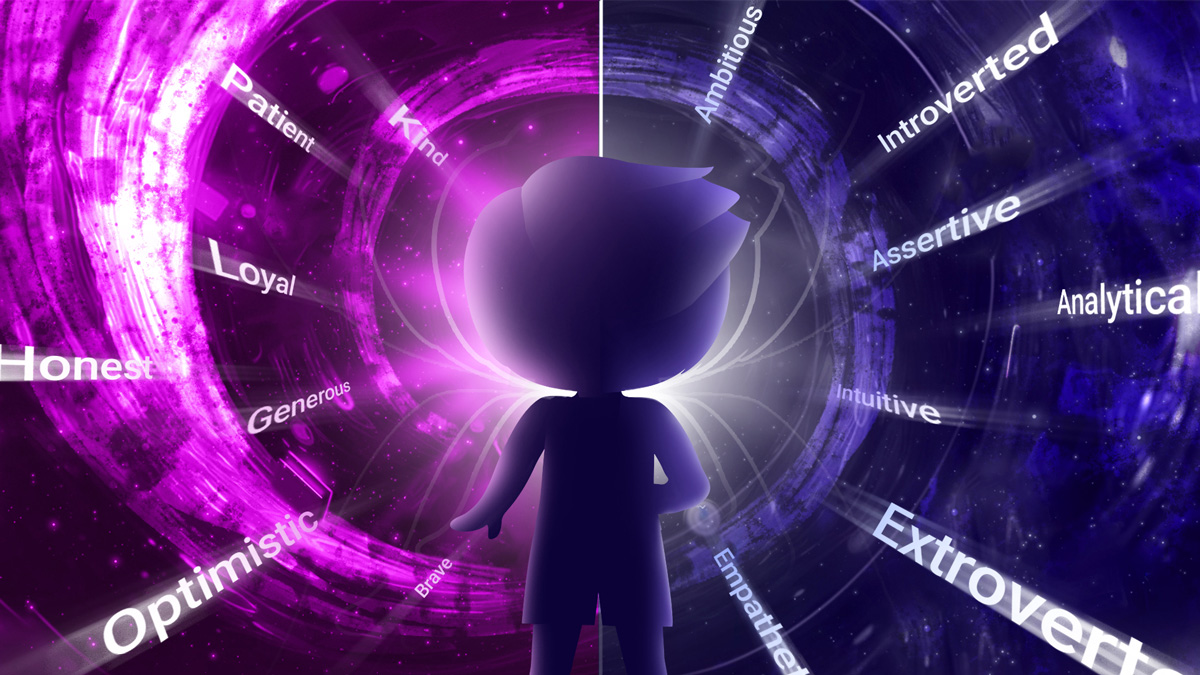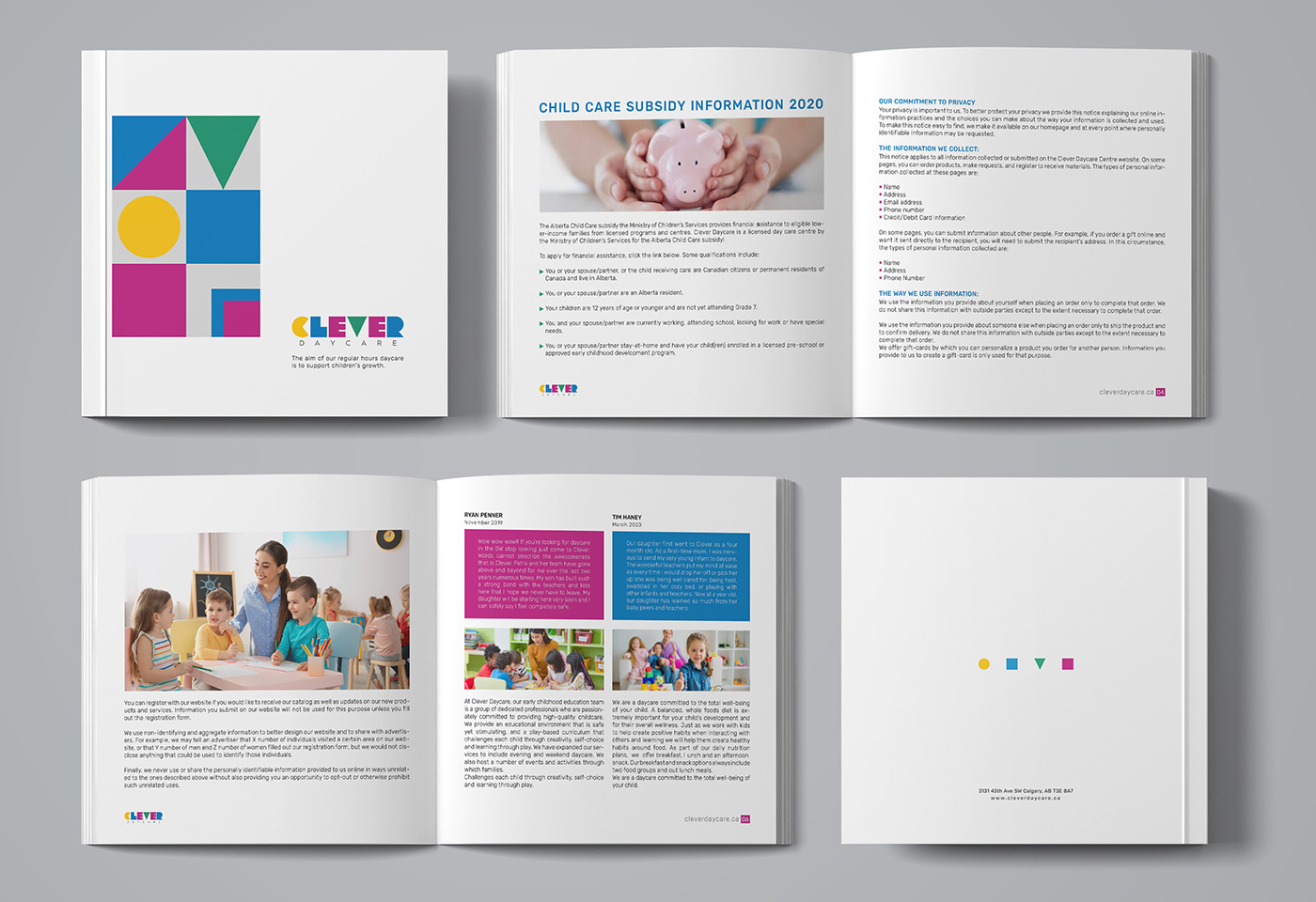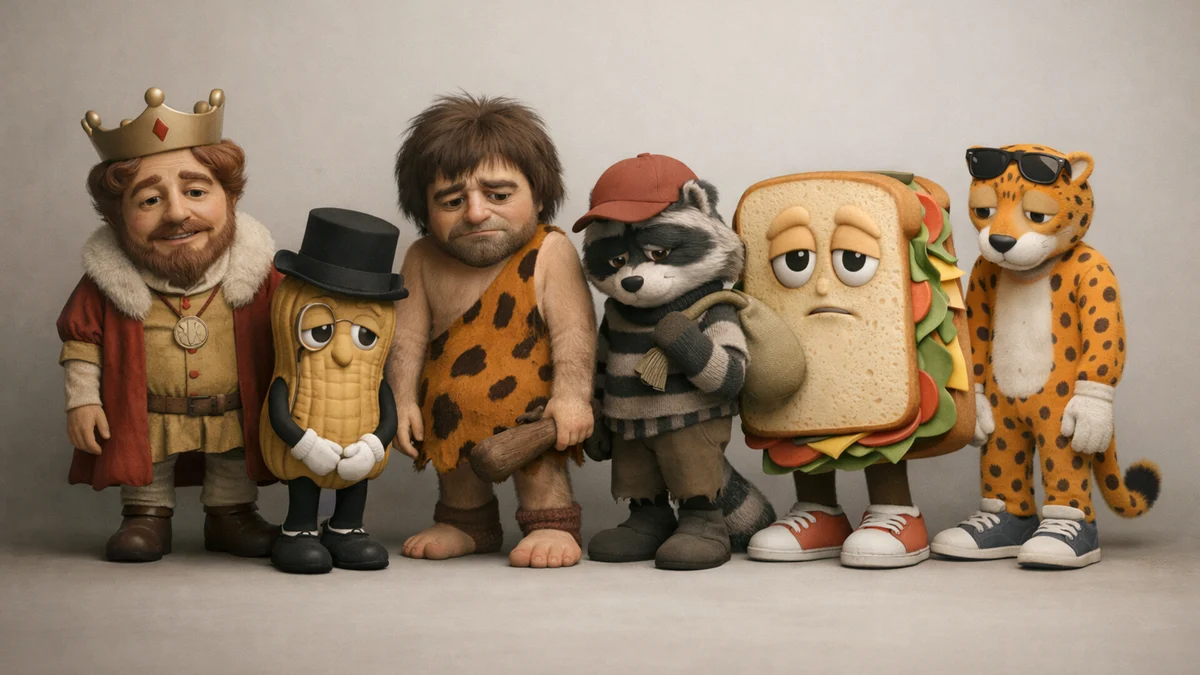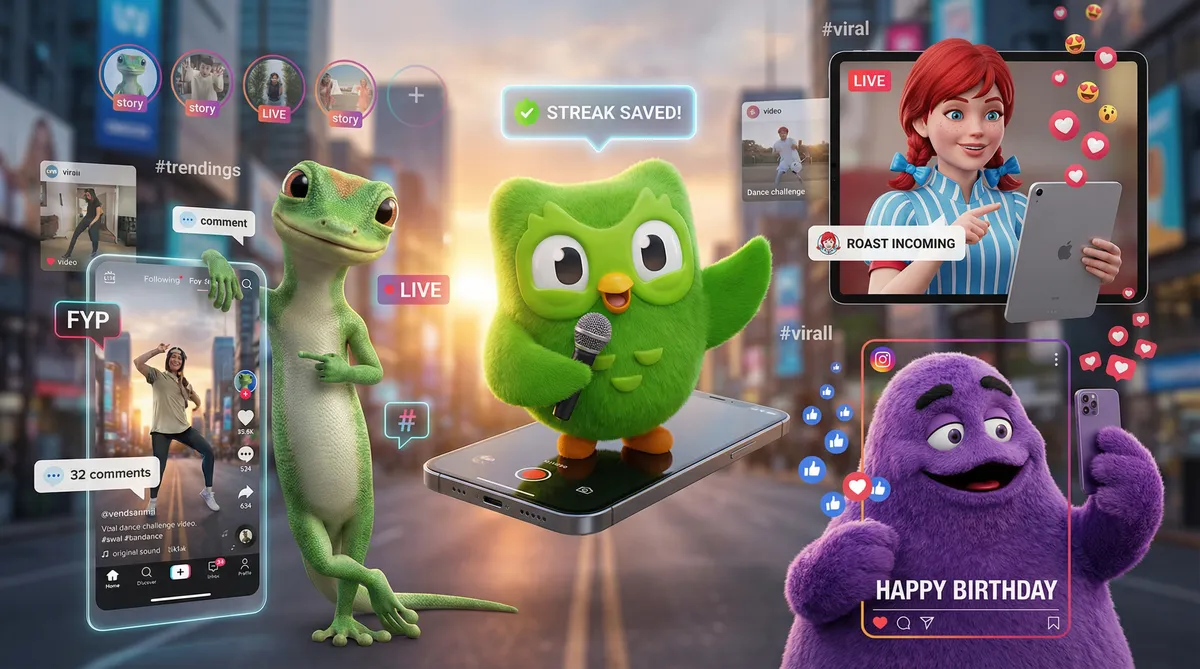
Perfect branding is critical to making your business successful and profitable in the long term. For perfect branding, you must take care of several things. Two of them are developing a brand personality and creating a brand character based on those qualities.
These two concepts may seem very similar on the surface but there are significant differences between them that you should be aware of in order to make the brand image you want for your business.
In this blog, we’ll define brand personality and brand character, explain their differences, and provide all the information you need to know.
Let’s begin with defining the brand character.
What is Brand Character?
It is literally a character that can be a person, animal, brand mascot, or even a fictional creature created according to branding guidelines to represent a brand in various channels. It can be used in marketing and advertising campaigns.
The most common and tangible form of a brand character is the mascot. Our main guide explains in detail what brand mascots are and how they bring a character to life.
The interesting fact you should know before proceeding to the following blog sections is that the brand character must embody the brand personality perfectly. This is because, as stated earlier, such creations are designed to represent the brand and must be able to convey the exact sense of the brand to the target audience.

Let’s leave it at this brief definition. For more information, we invite you to read our extended article about brand character, ‘What Brand Character Is and How to Build It Effectively.’
Before defining the brand personality, it’s best to address a vital, probably unseen, relationship.
How does the Brand Character Impact Consumer Engagement?
The primary goal of creating a brand character is to communicate with customers more efficiently. Therefore, it’s evident that brand characters significantly impact the way a brand engages with its target audiences.
If created flawlessly, brand characters can humanize the brand and help it foster an emotional connection with its audiences.
In other words, brand characters are designed to provide consumers with a direct way to connect with the brand and engage with it in various ways.
In crowded markets and intense competition, an excellent brand character can distinguish your business and increase brand recognition and awareness. Thanks to these notable accomplishments, you’ll have a great chance to gain a significant market share and keep your business profitable.
Additionally, brands can leverage characters to simplify complicated values and missions and see an improvement in brand loyalty metrics.
A well-developed brand character can effectively impact consumer engagement by creating a memorable, lovely, and humanized face for the business.
Now, it’s time to explore the meaning of brand personality.
What is Brand Personality?
Like the personality of a human being, brand personality is an intangible asset of a business. Let’s address this relatively complex concept this way:
Brand personality is a set of human attributes and traits a brand takes to give deeper meaning to its existence.
We establish and develop a brand personality to shape a brand image as we desire. If we want people to perceive us as a luxury brand, we should embody a luxury personality. You can compare Hermès with H&M; what distinguishes them in your mind is not just their products or prices but also their behaviors, content, advertising, brand identity, and marketing positioning. They are two different brands with different personalities!

The primary benefit of this abstract asset is that it can make the whole brand more memorable and relatable to its target audiences. Also, it’s a basic or fundamental material to create brand assets.
For example, before creating a brand mascot, we need brand personality documents.
A well-defined brand personality allows businesses to connect with customers personally, leaving more lasting impressions on them. Specifically, brand personality orients the target audience’s perception of a brand and influences their possible interactions with it.
Further in the blog, we’ll discuss all the differences and relationships between brand personality and character. But before proceeding to that section, let us give you an example that depicts the relation between these two.
A while ago, we had a client in the toy industry. This brand naturally had a joyful and energetic personality since kids adore these characteristics. The brand’s managers signed a contract with Dream Farm Agency to create a brand character.
After researching and updating the brand personality, archetype, and target audiences, our experts created a perfect brand character that serves their needs very well.
According to its joyful personality, the brand character was created.
You can view some of our client’s projects on our works page.
As mentioned, the character triumphantly helped the brand reach its marketing and advertising goals since it aligns flawlessly with the brand personality.
Chances are, you’re asking where this intangible, extremely important asset is expected to appear. Here’s the answer:
Key Design Aspects
Naturally, a brand’s defined personality must be reflected in product design, packaging, and user interfaces that will serve target audiences. All these touchpoints should embody the personality to increase effectiveness perfectly.
For example, if a brand personality is defined as calm and wise, the best decision is probably to use minimal designs across various touchpoints.
Aesthetic and Sensory Identity
In addition to design components, all other visuals, including the logo, typography, color palette, photography styles, etc., must align with the brand personality and convey the business’s humanlike characteristics.
Messaging Style and Voice
A brand’s tone must be determined based on its predefined personality. The language the brand uses for communication, its messaging standards, and its overall tone must strictly follow the attributes dictated by the brand personality and faultlessly reflect it.
Behaviors and Activities
Business managers must carefully review every action to ensure it does not conflict with the brand personality’s defined values and attributes.
All business managers and employees are considered representatives of the brand and are expected to make their best effort to spread the brand personality efficiently.
Let’s move forward and answer a frequently asked question about this concept.
The Critical Role of Brand Personality in Marketing
The impact of brand personality in marketing can be studied from multiple aspects.
First of all, a robust brand personality can efficiently guide marketing strategies and set the foundation for all marketing efforts. It acts as a compass to ensure that all content, campaigns, and messaging align with the brand’s identity.
Additionally, the brand personality helps attract the right audience since it focuses on the brand’s core values and attributes. As mentioned, it can foster a deep emotional connection with potential business customers.
Moreover, a well-thought-out brand personality can be helpful in influencing purchasing decisions, making your products and services the ideal choice for those who share the same value as your brand.
Lastly, one can’t ignore the brand personality’s capability to develop a consistent brand image, which is crucial for running successful marketing campaigns.
In general, an excellent brand personality that is defined wisely can help the marketing department achieve its goals more efficiently and make the business the talk of the town.
Up until now, we have been trying to set the infrastructure for the comparison that is about to come. Now, you fully comprehend the meaning of brand character and brand personality, alongside everything related to them. So, let’s get to the point and discuss their differences.
Main Differences Between Brand Personality and Brand Character
In the previous sections, we discussed the differences between these two concepts, and now, we will summarize them.
Tangibility: Brand personality is intangible, akin to a person’s traits, while brand character can be tangible, like a person’s physical appearance.
Functionality: Brand personality defines the brand’s identity, whereas brand character brings that identity to life in a tangible form, helping the brand connect with its audience.
Implementation: Brand personality is reflected in elements like tone of voice, design, and messaging and should guide all brand actions. Brand character, which humanizes the brand, is often used in marketing to create a lasting impression aligned with the brand’s values.
Relationship: Brand character visually represents and supports brand personality, making it more relatable and memorable.
In summary, while brand personality defines the brand’s essence, brand character gives it a tangible, human-like form to engage the audience effectively.
How does Brand Character help brand personality?
The brand personality defines the brand’s essence and guides all future efforts. However, to convey the created personality and defined characteristics, all businesses need a character or mascot that embodies those traits.
A well-crafted brand character that follows the guidelines set by the brand personality can perfectly humanize the brand and pave the way to create a deep emotional connection with potential customers.
Enhancing memorability is another expected benefit of a good brand character. In the digital era, people are bombarded with vast amounts of data daily. So, it’s normal if they forget your brand quickly since they’re likely to consume millions of pieces of content created by your rivals or other businesses from various industries. An excellent brand character is the solution to carving your business name in their minds.
Moreover, with a well-developed brand character, storytelling becomes much more straightforward because the mascot or character can be used as the lead actor of the story. We all know the importance of storytelling in the evolving world of marketing and its capability of attracting attention to your brand.
Last but not least, a brand character enables you to maintain consistency in your tone, messaging style, communication language, etc., across several channels, strengthening the brand personality.
Overall, creating a flawless brand character is vital to conveying the traits defined in brand personality and also making the desired brand image for your business.
Now, let’s conclude this blog.
Developing a brand personality and creating a character that perfectly personifies the characteristics defined in that phase is challenging and requires experts in this field to work together for some time.
Naturally, not all businesses have access to the resources needed to handle this task efficiently, so they outsource the process to professional agencies.
Our experts at Dream Farm Agency are capable of developing the brand personality for your business according to your demands and then creating a brand character that precisely embodies that personality.
If you want to ensure we’re the best choice, contact us to see our works and discuss details for possible cooperation.
NikanNavid, is an award-winning physician-scientist and clinical development specialist.



